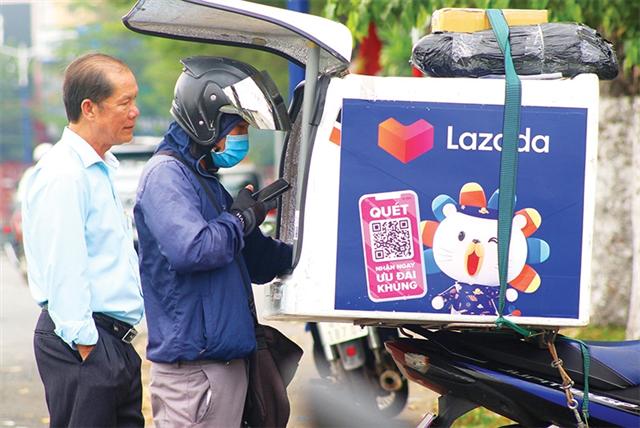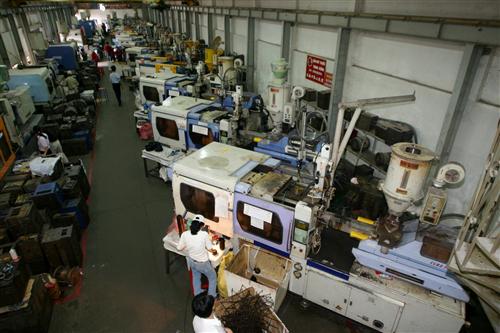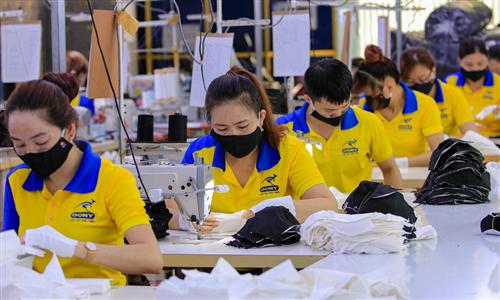E-commerce titans step up fake product fight
E-commerce titans step up fake product fight
Overseas e-commerce companies Lazada and Shopee may lose their positions in Vietnam if they keep demonstrating limitations in protecting consumers from low-quality and fake goods.

Groups like Lazada must solve problems with vendors trying to capitalise on the demand for pandemic prevention items
|
During the social distancing period fuelled by the ongoing pandemic, e-commerce platforms in the country recorded significant growth in the number of orders as all physical stores stood closed, and e-commerce applications became the only choice for shopping demand.
According to the Vietnam E-commerce Association (VECOM), such platforms have seen a hike of 20 per cent at least since the health crisis broke out. Some have even experienced an increase of 150 per cent against normal days.
Lazada Vietnam has witnessed the growing demand for hand sanitiser, toilet paper, and canned and prepackaged foods. These have increased by 160, 60, and 50 per cent respectively, since late February.
Meanwhile, under common impacts from the outbreak, Shopee Vietnam also received an extra 5.2 million visitors during the first quarter, the third consecutive quarter of visitor growth. Similar to Lazada, hand sanitiser gels, medical face masks, and prepackaged foods have been the best sellers on Shopee Vietnam for months now.
The latest report from iPrice Group, a privately-owned online shopping aggregator based in Malaysia, showed that consumption of grocery goods has grown by 45 per cent for the first three months of 2020.
However, along with the impressive growth in online shopping, the prominence of low-quality and fake goods has become more apparent on e-commerce websites, especially Lazada and Shopee. In recent times, a great number of consumers have bought the wrong items from the platforms and failed to get compensation or protection from the service.
Most recently, the Vietnam Competition and Consumer Authority (VCCA) under the Ministry of Industry and Trade (MoIT) said that they are handling a large number of complaints from e-commerce consumers, including 568 complaints from last year. Accordingly, the authority has collaborated with relevant ministries to inspect violations related to fraud on e-commerce platforms, in which Lazada is the most highlighted name.
Specifically, consumers have complained of receiving items that are different from the images on Lazada’s vendors. Explaining this, Lazada said that the orders are outside of its system, so consumers are not entitled to policies like return of goods or refunds.
“After receiving some orders, vendors will cancel them, then contact customers to shift stuff that is different from the orders,” VCCA reported in its latest document.
That is also the reason Lazada cannot check the order on its system and consumers cannot ask for refunds. The VCCA also highlighted concerns that the company seems unable to control vendors that carry out fraud. Lazada has yet to comment on the issue.
Similarly, Shopee – the leading e-commerce platform in Southeast Asia – cannot avoid the shortcomings. In one instance, as soon as the coronavirus hit Vietnam, a package of 100 Japanese medical face masks was offered for VND2.7 million ($120) on Shopee, about 10 times higher than the market price from before the pandemic. After receiving complaints from customers about the unusual pricing, the company removed it from search results.
Shopee is also enduring difficulties in keeping tabs on vendors flogging unauthenticated or downright fake goods to profiteer on the sky-high demand for face masks and hand sanitiser due to the coronavirus emergency.
Talking to VIR, a representative of Shopee Vietnam said that it has been keeping a close eye on the performance of vendors selling these items and “will block the accounts of vendors found in violation.”
Besides that, thousands of unauthenticated healthcare goods have been traded on e-commerce sites recently. The Vietnam E-commerce and Digital Economy Agency under the MoIT reported that about 5,200 vendors with more than 21,000 pieces of fake and unauthenticated goods were discovered and handled on the two e-commerce platforms.
|
In a survey from Nielsen Vietnam and Infocus Mekong Mobile Panel, 25 per cent of respondents confirmed to strengthen online shopping much more than direct buying. Seizing this chance, e-commerce platforms have rolled out campaigns like touch-free delivery solutions, and delivering fresh foods. However, according to Malaysia-based online shopping aggregator iPrice Group, the average e-commerce platform traffic in the first quarter reduced by 10 per cent on-year. Movement of some items like electronics and fashion, which used to significantly contribute to the growth of websites and online vendors, are low. The traffic of fashion websites decreased by 38 per cent in the quarter, while electronics websites reported a tiny increase by 4-5 per cent. The pandemic has already impacted the purchase of high-value items. Among e-commerce giants, Tiki, which is backed by tech firms and funds like VNG Corporation, Sumitomo, and CyberAgent, reported the best performance with a slight decrease of 500,000 traffic per month compared to the last quarter of 2019, to 24 million. Meanwhile traffic of Lazada Vietnam, which has received $4 billion from Chinese giant Alibaba and FPT Corporation’s local e-commerce platform Sendo, dropped off 7.3 million and 9.6 million to 19.76 million and 17.6 million, respectively. |




















